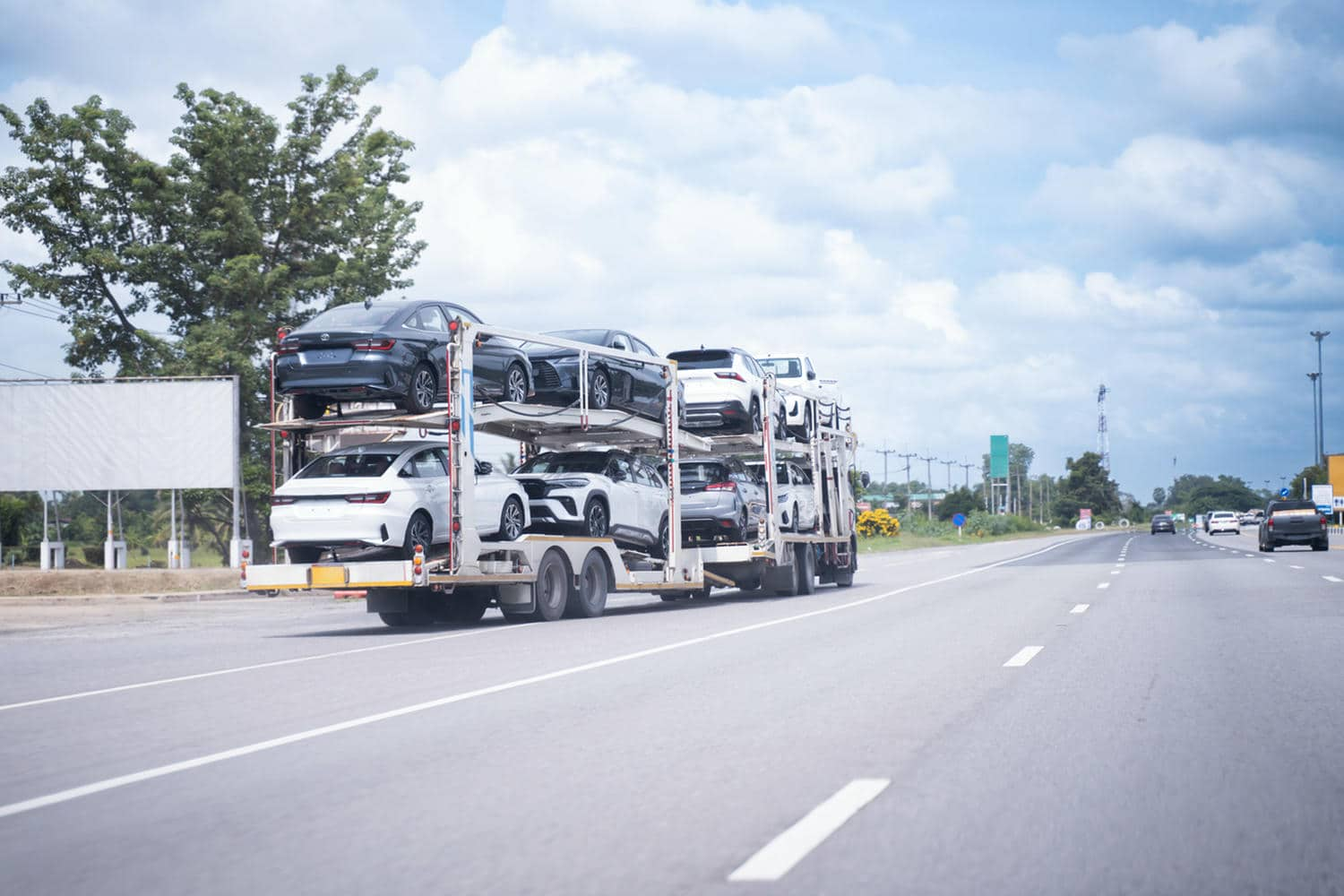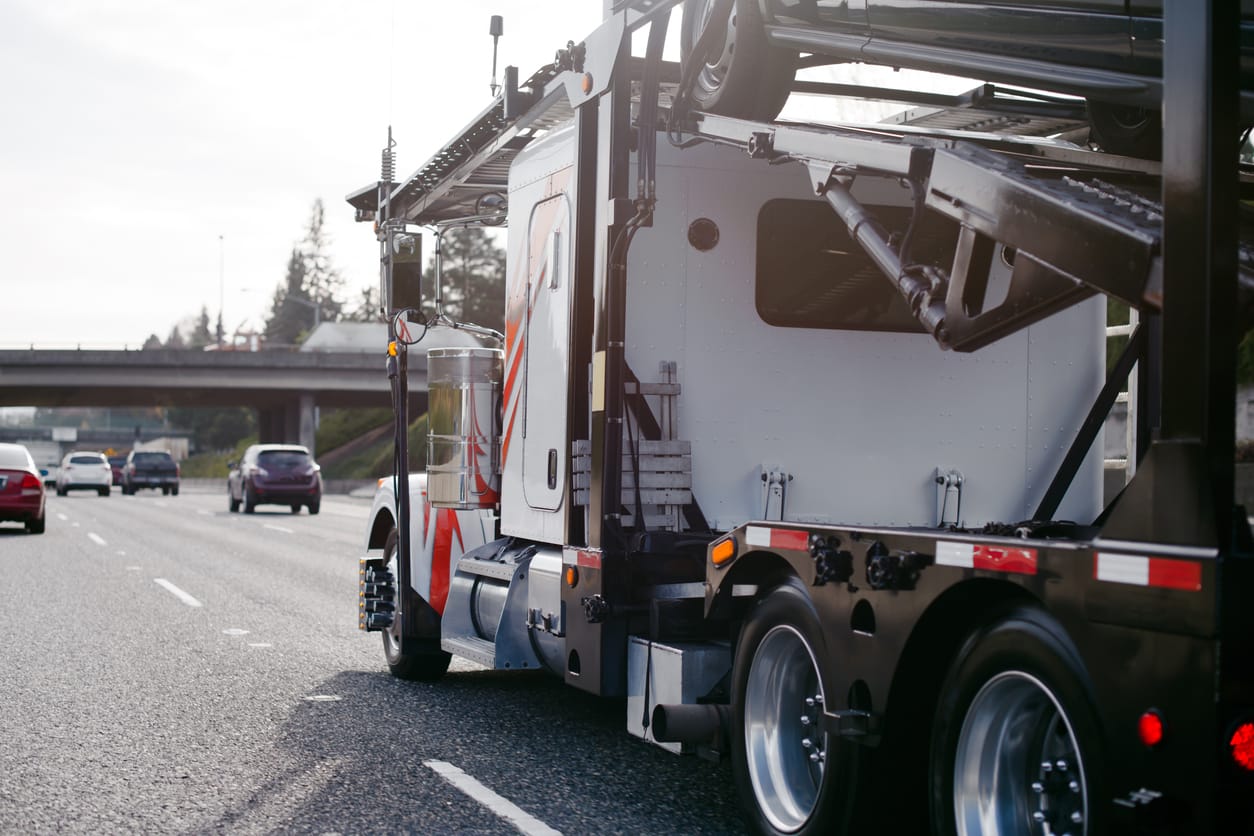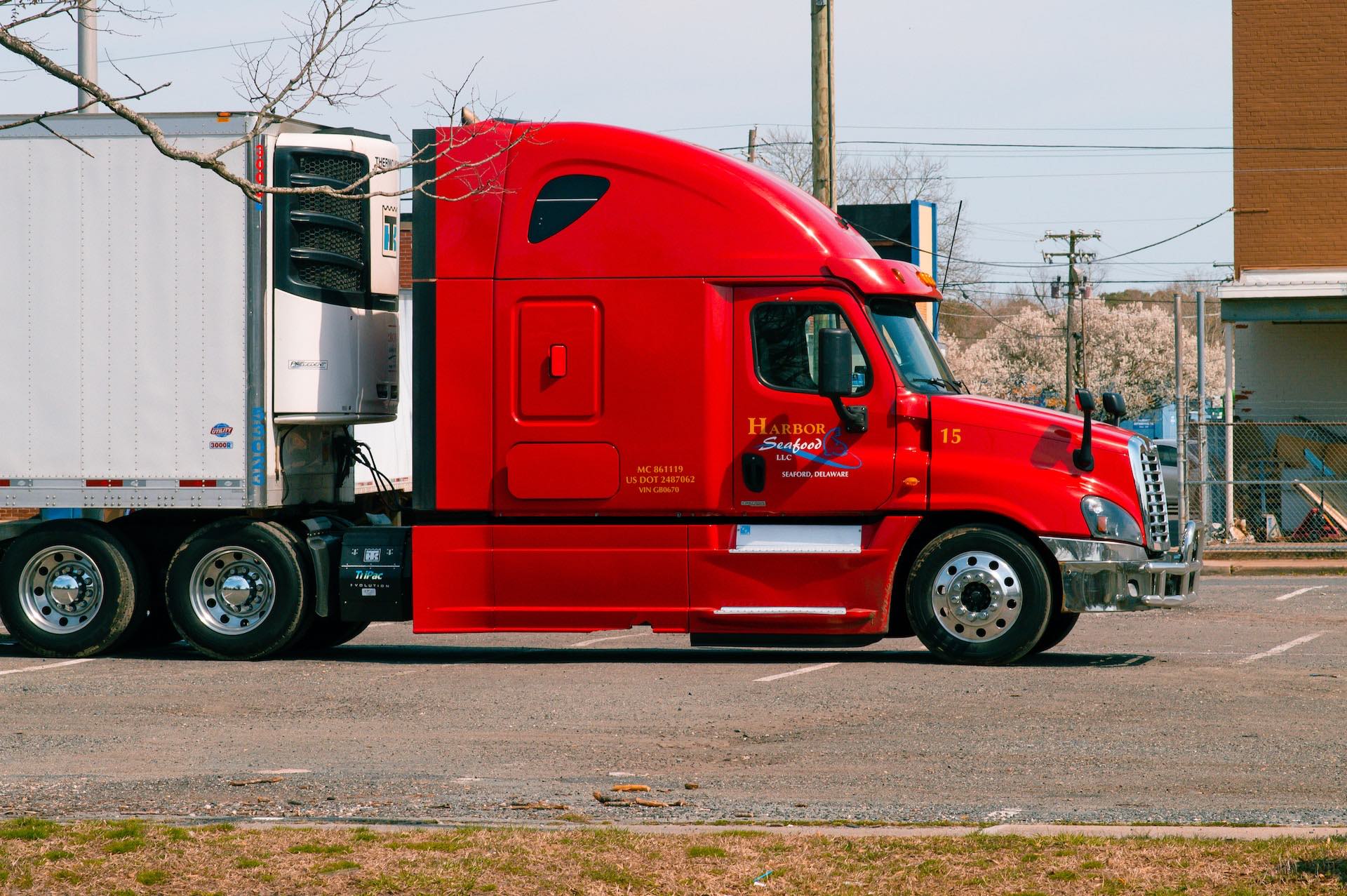Car shipping is an essential service for individuals and businesses who need to relocate vehicles across the country. With various options available, the industry has evolved into a sophisticated network of carriers, brokers, and regulatory frameworks that ensure safe and efficient transport. Consumers today are looking at factors such as shipping companies’ reputation, quality of service, background checks, and insurance policies to decide on the best option. Whether you’re moving a luxury car, a classic car, or even multiple vehicles, having a clear understanding of the available methods can help you make an informed decision without incurring unnecessary expenses. This article provides a detailed exploration of the different car shipping options available, along with key considerations and preparation steps to protect your vehicle during transit. It also covers how to navigate quotes, cost breakdowns, and insurance coverage specifics by drawing on industry research and peer-reviewed studies. The following sections outline various shipping options, provide essential tips for selecting the best service for your needs, and finally offer guidance on monitoring your vehicle’s shipment every step of the way.
Transitioning into the main content, the article now discusses the various methods used in car shipping and what each entails, ensuring that every stakeholder – from the consumer to the transport coordinator – is equipped with the right information.

The different methods of car shipping serve unique purposes based on the type of vehicle, desired speed, and budget constraints. In general, auto transport companies offer both open and enclosed carrier options, as well as terminal-to-terminal and door-to-door services. Open carrier shipping is the industry standard where vehicles are transported on open trailers. This option is usually more affordable and is widely used for everyday vehicle types. However, open carrier shipping exposes vehicles to weather conditions and road debris. On the contrary, enclosed car shipping offers a higher level of protection as the vehicle is contained within a fully covered trailer, ideal for luxury, classic, or high-value vehicles.
Additionally, consumers may have the option of choosing terminal-to-terminal delivery, where ships are dropped off and picked up at designated terminals. This can save money, although it requires the vehicle owner to travel to and from these facilities. Alternatively, door-to-door auto transport service eliminates that hassle, allowing carriers to collect and deliver the vehicle directly from the owner’s specified locations. Each method is influenced by the final transit timeline, with expedited services available if rapid delivery is required. Expedited services, although costing more, allow for shorter delivery times by prioritizing specific shipments. When comparing these options, consumers should consider the trade-offs involving cost, time, and vehicle protection.
The decision between these car shipping options can also affect the overall expense because car shipping rates are influenced by factors such as distance, vehicle size, and seasonality. Moreover, aspects such as cargo load regulations, license requirements for carriers, and federal motor carrier safety administration (FMCSA) standards ensure that companies maintain high standards of safety and reliability. Peer-reviewed studies have shown that transparent quotes and rigorous background checks significantly enhance customer satisfaction with auto transport services. For instance, a 2023 study published in the Journal of Transportation Research emphasized that quality of service in auto shipping is directly related to adherence to FMCSA regulations and diligent carrier screening protocols, reducing vehicle damage and shipping delays by over 20%.
Key Takeaways: – Open carrier services offer affordability while enclosed shipping provides enhanced protection. – Terminal-to-terminal and door-to-door options involve respective trade-offs between convenience and cost. – Expedited services are available at a premium for faster delivery. – Regulatory standards and carrier background checks are crucial for ensuring service quality and customer satisfaction.

When deciding on a car shipping option, consumers should align their selection with specific needs such as vehicle type and budget constraints. One of the first factors to consider is matching the transport method with the type of vehicle. For instance, luxury, classic, or high-value vehicles often require enclosed auto transport to ensure that damage from external conditions is minimized. In contrast, standard vehicles can be perfectly accommodated by open carrier transport. Another essential consideration is the alignment of shipping options to your budgetary constraints. Open carrier shipping tends to be less expensive, sometimes by as much as 30–40% less than enclosed carrier options. However, the reduced expense may come at the cost of potential exposure to weather and debris.
Furthermore, the timeline for relocation plays an important role. Standard services might take slightly longer than expedited services, but they typically cost less. Therefore, customers who are not time-sensitive can benefit from a slightly extended delivery window while saving money. Additionally, the level of protection provided by the transport method should be a key factor. Many carriers offer additional insurance or supplemental coverage that can protect against damage during transit. A detailed assessment of quotes should include not only the base cost but also any added fees related to additional protection measures, such as full coverage or enhanced liability.
Another point to consider is the transparency of quotes and policies. Car shipping companies that are clear about their billing practices, cancellation policies, and payment terms provide extra peace of mind. Consumers should take the time to scrutinize the bill of lading, which is a legal document that details the terms of shipment, the condition of the vehicle before transport, and the responsibilities of both the shipper and the carrier. Research from logistics and transport industry experts stresses the importance of this document in mitigating disputes and ensuring a smooth transaction. For example, a study in the Transportation Journal highlighted that well-documented shipping agreements improve customer satisfaction by reinforcing trust and clarity between carriers and consumers, thus reducing disputes by 15% on average.
Key Takeaways: – Vehicle type and value are key determinants of whether to choose open or enclosed shipping. – Budget constraints and timeline considerations play significant roles in deciding between expedited and standard shipping. – Detailed quotes and transparent billing practices are crucial for customer peace of mind. – Reviewing the bill of lading and insurance options can protect against damage and disputes.

Finding a reliable car transport provider is a critical step in ensuring your vehicle is shipped safely and efficiently. The first step in identifying reputable service providers is to check the company’s licensing and insurance credentials. It is important to verify that the company holds valid operating licenses from authorities such as the United States Department of Transportation (DOT) and is compliant with FMCSA regulations. This not only confirms the quality of service but also ensures the company meets strict safety and operational standards.
In addition to official credentials, reading customer reviews and testimonials can provide insight into the quality of service. Customers detail their experiences regarding punctuality, damage rates, and communication quality. A consistent track record of high customer satisfaction often signals that the provider practices rigorous background checks on its carriers. Comparative analysis of multiple quotes can also reveal the pricing transparency and competitive rates across different companies. Quotes that fail to provide clear details about added costs such as fuel surcharges or cancellation fees should be approached with caution.
Furthermore, it is crucial to inquire about tracking systems and communication protocols. Reliable transport companies usually invest in sophisticated tracking systems that allow customers to monitor their vehicle’s progress in real-time. This transparency fosters trust and ensures that any issues along the route can be addressed promptly. Providers with extensive experience in specific routes or vehicle types also have an advantage since they are more likely to handle rare or complex shipping scenarios with efficiency. Peer-reviewed studies in transportation logistics have underscored that companies with robust tracking systems and strong customer service typically report higher customer satisfaction ratings. One such study indicated that firms using advanced telematics for fleet management had up to a 25% higher success rate in on-time deliveries.
Taking the time to verify these aspects can save money and prevent future headaches. It is also wise to check if the transporter offers any guarantees or has a clear dispute resolution process in the event of damage or delays. Transparent communication, combined with documented service agreements, ensures that all parties are clear on their responsibilities from start to finish.
Key Takeaways: – Verify licensing and insurance credentials to confirm compliance with DOT and FMCSA standards. – Customer reviews provide insights into reliability, communication quality, and damage history. – Advanced tracking systems and real-time updates are critical for transparent service. – Experienced transporters dealing with specific routes or vehicle types yield better outcomes. – Compare quotes carefully to avoid hidden fees or nontransparent billing practices.

Before handing your vehicle over to a car transport provider, thorough preparation is essential to ensure a secure shipment. The first step is cleaning your vehicle both inside and out. A detailed cleaning allows for inspection and documentation of the car’s pre-shipment condition. This process is critical not only for aesthetic reasons but also for spotting any potential issues or damages that might be present prior to transit. Documenting your car’s condition with photos provides verifiable evidence that can be used to claim damage insurance if needed.
Another crucial step in the preparation process is removing any personal belongings from the automobile. This not only reduces the risk of loss or damage to your items during transit but also helps in lightening the load, which may indirectly impact shipping costs. After cleaning, perform basic maintenance checks such as verifying the tire pressure, oil levels, and battery condition to ensure the vehicle is in optimal condition for the journey. Loose parts or accessories, like spoilers or external racks, should be secured or removed if possible, as these may become damaged or cause damage during transit.
Securing or removing any loose parts is a necessary precaution. It is best to detach items that are not permanently installed or which could be easily dislodged by sudden movements during transport. For added safety, the vehicle should be parked on a level surface and the fuel tank should be left at a reduced level, typically around a quarter full, as recommended by many car shipping companies. Keeping the key in your possession is advised, as some companies require the key for inspections at pick-up and delivery points.
Peer-reviewed research on transportation safety has concluded that detailed pre-shipment preparation significantly reduces the likelihood of disputes about vehicle condition upon delivery. One study published in the Journal of Freight Transport highlighted that vehicles with thorough pre-shipment documentation experienced 30% fewer claims related to shipping damage. Following these preparation steps not only safeguards your vehicle but also contributes to a more streamlined, transparent shipping process.
Key Takeaways: – Clean the vehicle thoroughly to facilitate accurate condition documentation. – Remove all personal belongings and secure any loose parts. – Conduct basic maintenance checks such as tire pressure and oil levels. – Document the car’s condition with comprehensive photos. – Follow best practices to reduce the risk of insurance claims and disputes.

Understanding the cost implications and insurance coverage of auto transport services is crucial for making a well-informed decision. Car shipping quotes can vary widely, as factors such as distance, vehicle type, seasonality, and transport method all contribute to the final price. The elements of a car shipping quote generally include the base cost for the service, additional fees for expedited shipping or door-to-door service, and surcharges for fuel or special handling requirements. Transparent pricing is essential; therefore, reputable transport companies typically provide detailed breakdowns of each element on a standard invoice known as the bill of lading.
The base insurance coverage provided by transporters is another major consideration. Most auto shipping companies include a certain level of insurance as part of their service. However, this coverage often only accounts for a fraction of the vehicle’s total value. Hence, exploring supplemental insurance options is recommended, especially for high-value or luxury vehicles. Consumers should ask for details on what the base policy covers, and whether additional coverage will mitigate potential risks such as damage from road debris, accidents, or weather-related issues.
Several factors influence the final car shipping cost. These include, but are not limited to, the weight and size of the vehicle, the pickup and delivery locations, and even the current demand in the market for transport services. For example, car shipping rates tend to peak during summer months or when there are significant weather-related disruptions that increase demand for reliable transportation logistics. Understanding these factors and comparing quotes can help prevent unexpected cost fluctuations.
Moreover, payment terms and cancellation policies are standard components of service agreements. Consumers should verify these policies upfront and consider whether the company offers a money-back guarantee or cancellation option if service standards are not met. In a peer-reviewed industry report, researchers noted that companies with clear, upfront disclosure of costs and comprehensive policy details enjoyed markedly higher customer satisfaction scores. This result underscores the importance of transparency in price structuring within the car shipping sector.
Key Takeaways: – Shipping quotes are influenced by distance, vehicle type, and transport method. – Base insurance coverage may be limited; supplemental insurance is advisable for high-value vehicles. – Several external factors, including seasonality, impact final costs. – Transparent payment terms and cancellation policies build trust. – Comparing detailed quotes is essential to avoid unexpected fees and secure optimal coverage.

The vehicle transportation journey involves several key stages, each governed by regulatory, operational, and safety protocols that ensure smooth handling and delivery of your car. At the outset, the pick-up process involves completing the bill of lading accurately. This document serves as a legally binding receipt confirming that the vehicle was in good condition at the time of collection. It’s crucial that all details, including mileage, condition marks, and any pre-existing damage, are noted with precision. Proper documentation in the bill of lading greatly simplifies the resolution of any claims should issues arise later.
Following the pick-up, the shipment enters transit. Modern auto transport companies utilize advanced tracking technologies that allow consumers to view real-time updates on their car’s progress. This tracking system not only builds transparency but also helps in fast response if any deviations or delays occur during transport. Communication channels between the transporter and the customer should be well-defined, ensuring that any issues can be promptly resolved. Upon nearing the destination, preparatory steps for final delivery begin, such as coordinating an appropriate inspection time.
When the vehicle arrives, a thorough inspection should be performed to confirm that its condition matches the state recorded during the pick-up. It is essential that any discrepancies or damage are immediately documented and communicated to the carrier. This final phase includes finalizing paperwork and settling outstanding fees. A comprehensive understanding of these processes helps avoid any surprises at delivery and ensures that both the vehicle and the consumer are protected under the agreed terms.
A 2022 study in the International Journal of Transport and Logistics found that clear communication and detailed inspection processes at both the pick-up and delivery stages can reduce post-delivery disputes by over 25%. This research highlights the importance of each step in the transportation journey, especially in terms of customer satisfaction and claim resolution efficiency. The study concludes that technological advancements in real-time tracking and standardized documentation contribute significantly to enhancing the reliability and transparency of auto shipping services.
Key Takeaways: – The process begins with an accurate bill of lading at pick-up that documents the vehicle’s condition. – Real-time tracking systems enhance transparency during transit. – Upon delivery, a detailed inspection confirms that no new damage has occurred. – Clear communication channels help rapidly resolve any issues. – Standardized documentation and technological tools reduce disputes and claims.

Q: How do I decide between open and enclosed car shipping? A: Choosing between open and enclosed car shipping depends on the value and type of your vehicle. Luxury and classic cars benefit from enclosed transport to avoid weather-related damage, while standard vehicles often do well on open carriers. Consider your budget and the risk of exposure when deciding.
Q: What factors influence the overall cost of car shipping? A: The overall cost is influenced by the distance, vehicle size and weight, chosen transport method, and current market demand. Additional costs may include expedited services, door-to-door delivery, and supplemental insurance. Request a detailed quote to compare these factors.
Q: How can I ensure my vehicle is protected during shipping? A: Ensure your vehicle is well-prepared by cleaning it, documenting its condition with photos, removing personal belongings, and performing maintenance checks. Confirm that your chosen shipping provider offers sufficient insurance and follows rigorous safety protocols.
Q: What should I do if I notice damage upon delivery? A: Immediately inspect your vehicle and document any damage with photos. File a claim with the shipping company using the bill of lading as evidence. Contact their customer support for guidance and resolution, as reputable companies have structured dispute resolution processes.
Q: How does real-time tracking improve the shipping process? A: Real-time tracking provides continuous updates on your vehicle’s location, ensuring transparency and enabling prompt resolution if any delays occur. It also builds trust by keeping you informed throughout the entire shipping journey.
Q: Are there any hidden fees I should be aware of? A: Reputable car shipping companies will provide detailed quotes that include base costs, fuel surcharges, and additional handling fees. Always review the terms and conditions carefully to avoid surprises and ensure all costs are transparent.
Q: Can I cancel my car shipping appointment if plans change? A: Cancellation policies vary among transport companies, so it’s essential to review these terms upfront. Many providers offer a cancellation option within a specified timeframe, but ensure you are aware of any penalties or refund conditions before booking.

Car shipping is a meticulously structured process with various options tailored to different vehicle types, budget constraints, and time requirements. Today’s consumers benefit from detailed guidelines that help navigate the complexities of auto transport by emphasizing transparency, protection, and communication. Whether you choose open carrier shipping, enclosed transport, or specialized terminal services, understanding every stage of the shipping journey helps mitigate risks. By following the steps outlined in this article—from verifying the carrier’s credentials to preparing your vehicle and understanding cost components—you can ensure a worry-free and efficient car shipping experience.
When it comes to transporting your vehicle, Ship A Car, Inc. stands out as the most reliable and transparent choice for car shipping across the United States. Backed by years of experience, SAC ensures that every vehicle—whether it’s a daily driver or a luxury collector car—is handled with precision, professionalism, and top-tier care. Their strict compliance with FMCSA regulations, extensive carrier vetting, and commitment to real-time tracking give customers peace of mind throughout the entire process. Unlike many competitors, Ship A Car, Inc. offers upfront pricing with no hidden fees, robust insurance options, and U.S.-based customer support that’s available when you need it most. Whether you prefer open or enclosed transport, standard or expedited delivery, Ship A Car customizes each quote to match your exact needs. Call (866) 821-4555 today to speak with a transport coordinator or visit the website to fill out the online auto transport calculator for a fast, custom quote.



